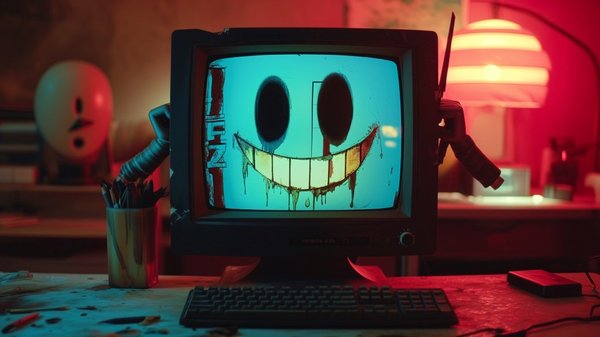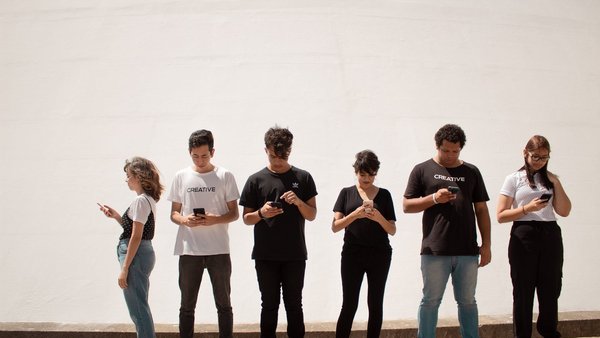Extinction Rebellion on activism, optimism, emergencies and urgency /
Creative strategist turned XR activist Will Skeaping finds hope in the teeth of a crisis
Katrina Stirton Dodd
/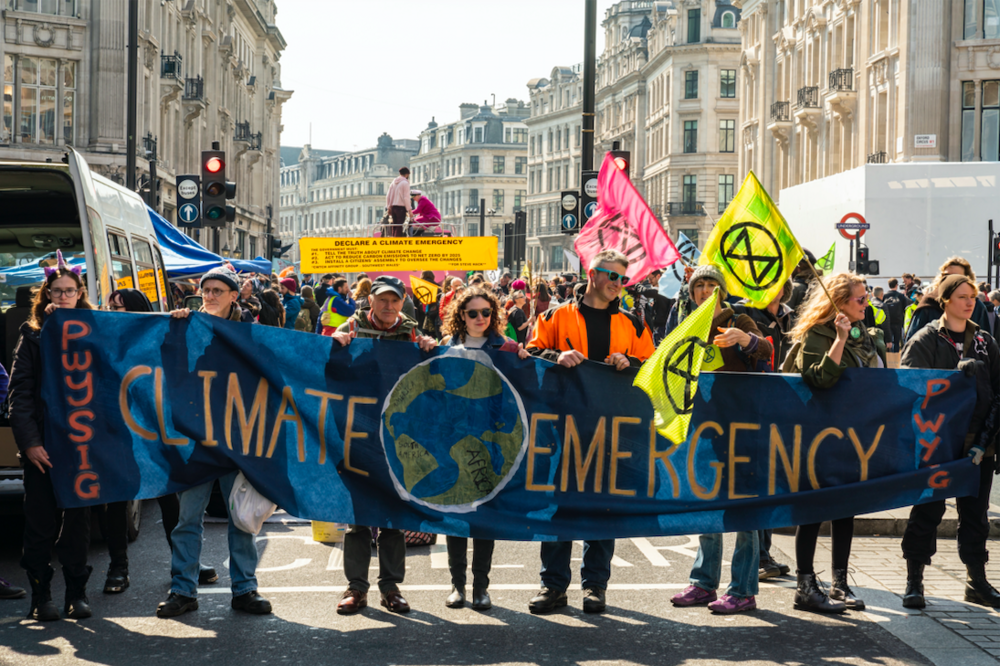
You’d be forgiven for feeling the world has enough to contend with right now. In a handful of weeks the Covid-19 pandemic has developed into an international health emergency on a scale few could have imagined. But with the world in various states of lockdown, the need for social distancing and its rapid impact on economic life has brought a significant proportion of humanity to a startling, but profound realisation. Change can happen, and it can happen fast.
When environmental protest group Extinction Rebellion (XR) sent an open letter to the advertising industry in May last year, the upstart movement was riding high. The success of a protest, during which a pink boat was parked in the centre of London’s Oxford Circus and brought the busiest street in the capital to a standstill for half of April, had created momentum. The letter exhorted Adland to ‘declare a climate and ecological emergency and act accordingly. Persuade your clients and their audiences to do the same.’
Almost a year on, as the world adjusts to its new #WFH normal, we speak to one-time McCann London creative strategist Will Skeaping, now an activist with XR, to find out what the letter changed, and how the current crisis could influence our response to the climate emergency.
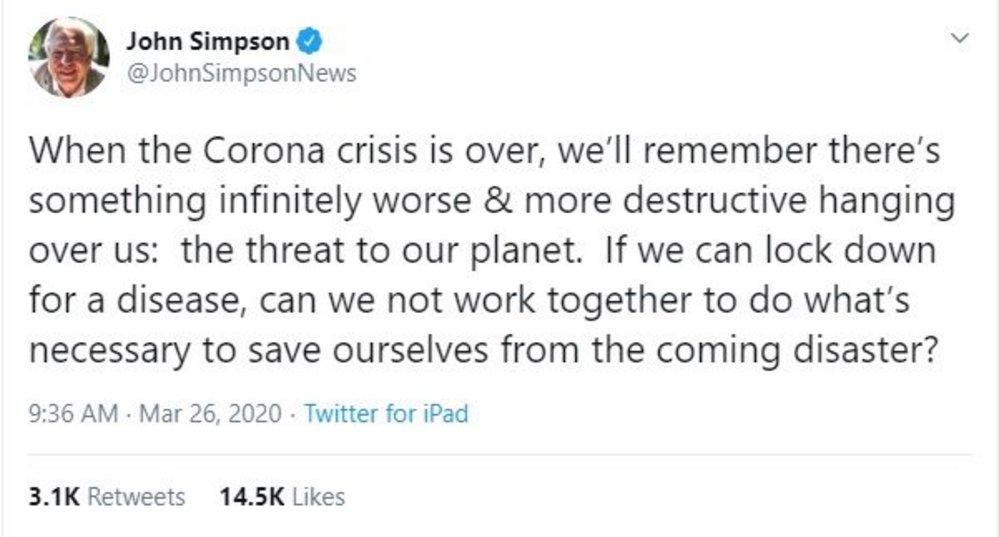
It’s been almost a year since your letter to the ad industry: has anything changed?
I think everyone has begun to wake up to this problem, but will do anything to avoid actually having to address it full on. It’s almost like they're going to need a budget from someone to decide how they're going to address it.
It's always about the wrapper, it's never about the actual substance: brands keep talking about brand purpose, agencies want to talk about brand purpose. But no one’s filling in the missing bit, which is the substance of what that really is […] No-one wants to fill in those blanks. That's where we've still got so much work to do.
Will Skeaping, Extinction Rebellion
Is that relative lack of response more or less than you expected to see?
It's less. Brands and businesses keep talking about how ahead of the curve they are, how creative they are, how they’re so strategic – all words you need to help solve big climate and ecological puzzles. The reality is that they haven't been strategic or creative in their responses. They’ve been absolutely business as usual.
Beyond adland are there organisations or industries that are doing any better?
We’ve begun to open discussions with the art world – another one of the creative industries, worth $68.5bn, so it’s not to be sniffed at. They immediately jumped to attention, got their heads around this and are looking at how they can radically shift much of their practice.
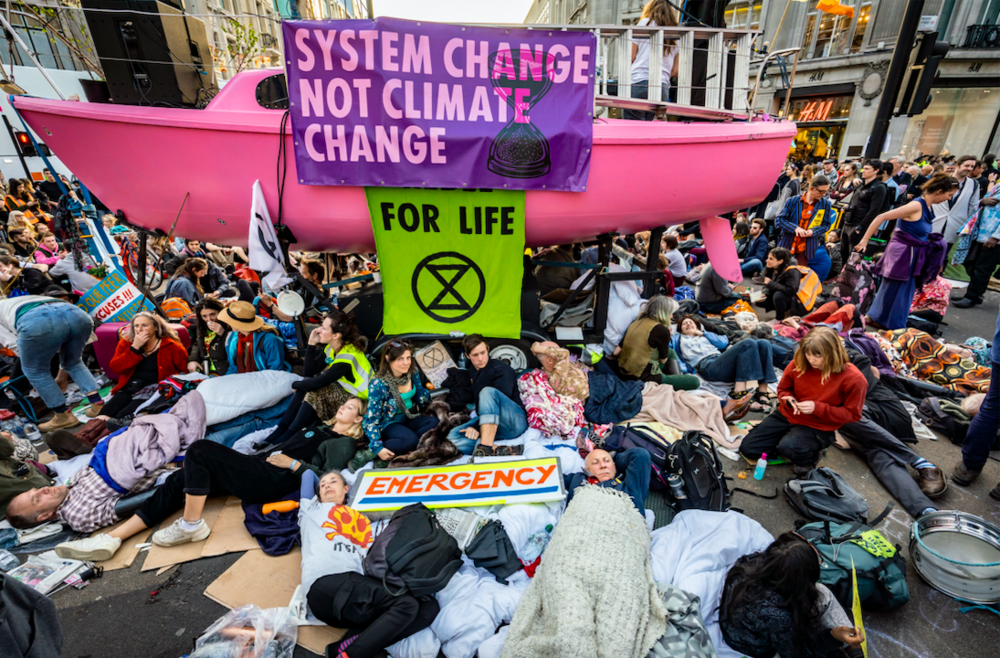
How did they get started on that path?
By bringing together the leaders of all the main galleries and institutions – proactively, on their dime – and they’re beginning to really address what they need to do. We didn’t even have to nudge them, they just got it.
I’m not saying they’re smarter or they’ve got nicer suits: there are analogies between these industries. Art could be seen in the same way you might look at luxury brands. But the advertising industry is still not recognising the extent to which it is part of the problem and therefore it is not addressing it with the urgency which is necessary.
What do you think they are they missing?
That the climate and ecological emergency is the new setting for all stories. It has arrived already, it’s killing millions on the other side of the world. This is the next big looming coronavirus-on-meth that will change everything in all our lives for ever, and yet it’s not the headline of every single brief.
Will Skeaping
The industry is already under intense pressure: how should they reconcile that sense of existential threat with your insistence on the need for a fundamental rethink?
You hit the nail on the head. It’s hard times anyway economically – the last thing you need is a bunch of crusty activists turning up and telling you that ‘this all has to change’ and being forced to listen to them. We’ve all got mortgages, we’ve all got homes and this is perhaps the first time we’ve all been tested in thinking through the coronavirus and what that means.
But the old system doesn’t work. It’s failing an entire industry and it’s beginning to wind itself down anyway. If you’re going to have to change, you might as well change radically and solve two problems in one, rather than change once and still be stuck in the same downward spiral.
We’re already experiencing the Covid-19 crisis. Do we need to prop up the banks and the airlines and the brown [fossil fuel-reliant] economy and wait for the climate emergency to hit, or do we go all in and say ‘the whole thing is bust, we must change it now’?
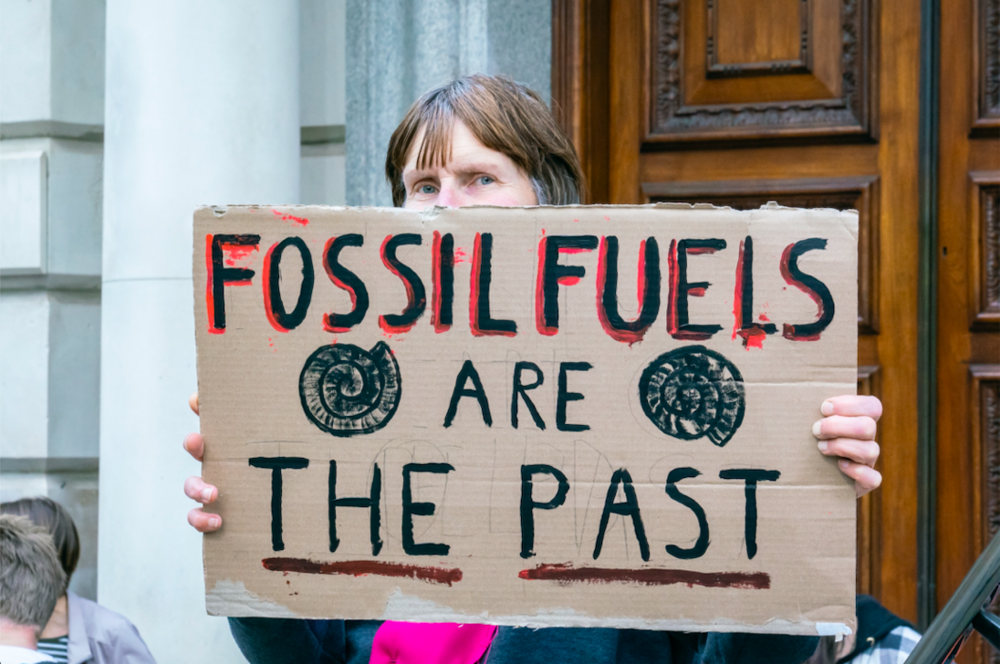
What do brands, marketers and agencies stand to gain by taking the initiative and acting positively?
A new role in the media landscape of the future within a climate and ecological emergency. A role as communicators and connectors between people, governments, business and brand. Whatever that future is, communication is going to be vital.
Mediation between power and community will be an exceptionally important challenge for everyone in a communications role.
What’s the first step you’d suggest to get things moving in that direction?
When Extinction Rebellion protests have been successful it’s been about bringing people together and getting them on the same page, and this is what we need the industry to do.
Building community is radical in a time of division. The CEOs need to call the other CEOs. Reach out to your competitors, your rivals and your enemies and your best friends, and get together and work out how you’re going to shift an industry.
And if the leadership won’t do that job, if your CEO won’t change, change your CEO.
Will Skeaping
And if that kind of action is not forthcoming will you continue to try and move things forward?
If the agencies won’t change, we’re asking ourselves how far up the chain of command can we take this? So now we’re speaking to the Advertising Association and looking at how they can help support a vital transition in this industry that is just and works for everyone, not just the c-suite.
It shouldn’t be up to Extinction Rebellion to tell an industry what to do. But if people want to discuss this with us and look at how we can work together, then we’re ready and waiting – you’re just not going to win any Cannes awards doing it.
Will society’s experience of the current pandemic significantly affect how we ultimately engage with the ecological and climate crisis?
Yes, I really hope so. This is a time of very surprising change and what it shows is the plasticity of human thinking: people are capable of really quite radical, substantial changes to society almost overnight, and normalisation sets in very fast.
We’ve seen a drastic shift in the way that we’re all living. We’re all beginning to realise that other ways are possible – and that we need to be more human and less Kardashian. The things which make us happy or scared are not necessarily the things which are for sale.
You can’t buy your way out of these emergencies, and panic buying was perhaps the symptom – or one of the death throes – of this belief that you can.
We have to be brave enough to meet that audience where they are, tell the truth about the ecological and climate crisis to ourselves and each other and know that if we don’t all make that change then this is all over anyway.
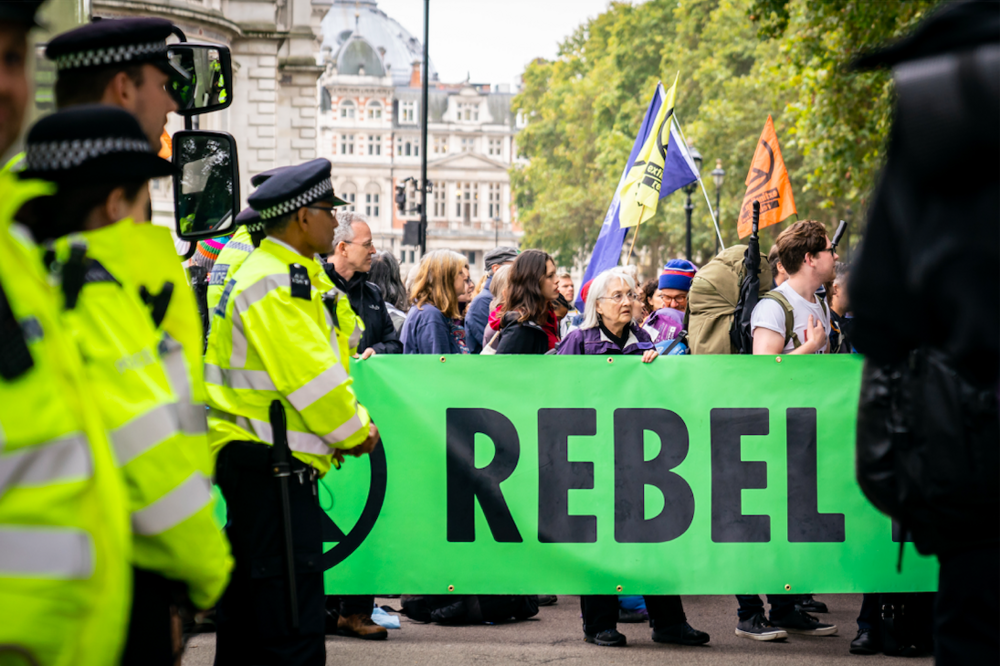
Is the massive [although keenly debated] coronavirus response the example we seem to need for what it means to take meaningful action?
Yes. [Former UK prime minister] Gordon Brown’s take on this really resonated. He said “This is not something that can be dealt with in one country. There has to be a coordinated global response.”
All of the comparisons to wartime mobilisation, the idea of treating this like a genuine global emergency, listening to scientists, radical change, recognising that lives are at stake… You could replace ‘coronavirus’ with ‘climate and ecological emergency’ to get a sense of the urgency and manifest a shift from business as usual.
It's scary that leaders try to pass the buck to the individual for both crises when they should be leading with radical action for all. The climate and ecological crisis, and this pandemic both require people to act together as a community, which is sadly considered radical. We're currently alone but together, at some point we'll be back on the streets in our millions.
Will Skeaping
Wealthier societies have enjoyed the benefits of the consumer society: is it fair to deny people in developing economies the aspiration – and access – to the same lifestyle?
Perhaps we have the ability to set the aspiration in the developed world? The climate and ecological emergency is already a reality in those places – for many of them it’s almost too late. This transition should be positive for all.
The other aspect of climate justice is that what we do in the present affects all future generations. We talk about, in advertising terms, ‘appealing to Gen Z audiences’. Well you simply cannot talk about what Gen Z audiences want or feel without addressing the ecological and climate emergency. That’s the absolute simplest part of that climate justice conversation for advertisers.
The entire advertising industry is currently sitting at home and trying to figure out how to respond to a very different and challenging few months…
They’re probably worrying about their jobs…
They probably are: what advice do you have for them?
We’re all going to have to change, so we might as well make sure that we get this one right and help to build something that is fit for purpose, that works for all people in society – and that includes you.
There’s so much activism that can take place from home, so much campaigning and so much planning for how we’re going to change once we get through this. Think about how you can make a positive difference. Get together with people across the world, across your community and across your industry, even though we may have to do it digitally.
Let’s build that community and those connections right now, while we have time.
Want to learn more about how brands and marketers can survive and even thrive in a world that demands we consume less, not more? Join our Lockdown Learning livestream presentation on April 29 here and we’ll explain how in a session packed with research and best-in-class examples.
Want more of the same? /
We don’t just write about best-in-class campaigns, interviews and trends. Our Members also receive access to briefings, online training, webinars, live events and much more.




